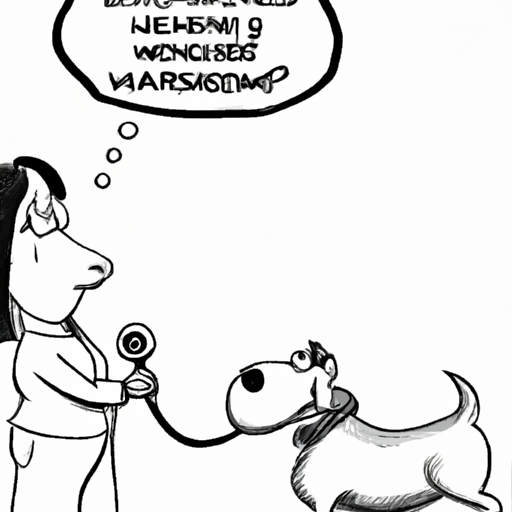Understanding the Canine Respiratory System
As a caregiver, it’s important to understand the workings of your dog’s respiratory system. Dogs, like humans, rely on their lungs and airways to provide oxygen to their bodies. When you hear your furry friend wheezing, it’s often a sign that something is hindering this essential process. It’s the equivalent of a car’s engine sputtering – a clear indication that something isn’t running smoothly.
Common Causes of Wheezing: Allergies, Infections, and More
There are several reasons why your dog might be wheezing:
-
Allergies: Just as humans do, dogs can suffer from allergies that cause respiratory distress. This could be due to environmental factors, like pollen or dust, or food allergies.
-
Infections: Respiratory infections, such as kennel cough, can cause your dog to wheeze.
-
Physical Obstructions: If your dog has inhaled a foreign object, it can cause wheezing as your dog’s body tries to expel it.
-
Chronic Conditions: Conditions like heart disease, lung disease, or tracheal collapse can also lead to wheezing.
Recognising the Signs of Distress
As a caregiver, it’s crucial to be able to recognize the signs of distress in your canine companion. Besides wheezing, you may notice:
- Rapid breathing or panting
- Coughing or choking
- Changes in behavior or energy levels
- Blue-tinged gums or tongue
If you observe any of these signs, it’s essential to contact your vet as soon as possible.
When to Seek Veterinary Attention
Not every case of wheezing requires immediate veterinary attention. However, if the wheezing is persistent, accompanied by other distress signs, or if your dog has a history of respiratory problems, it’s best to err on the side of caution.
| Symptom | Action |
|---|---|
| Occasional, mild wheezing | Monitor your dog, but no immediate action required |
| Persistent wheezing | Contact your vet |
| Wheezing with other signs of distress | Seek emergency veterinary care |
Preventing Wheezing in Dogs
Prevention is always better than cure. Here are some steps you can take to help reduce your dog’s risk of wheezing:
- Keep your home clean to reduce allergens.
- Avoid smoking around your dog.
- Ensure your dog gets regular exercise and maintains a healthy weight.
- Regularly check for and remove any potential choking hazards.
FAQ
Q: Can I give my wheezing dog human medication?
A: No, always consult with a vet before giving your dog any medication.
Q: How can I tell if my dog’s wheezing is serious?
A: Persistent wheezing, wheezing accompanied by other signs of distress, or if your dog has a history of respiratory problems, should be evaluated by a vet.
Q: Can dogs wheeze from stress?
A: Yes, stress or anxiety can cause changes in a dog’s breathing, including wheezing.



